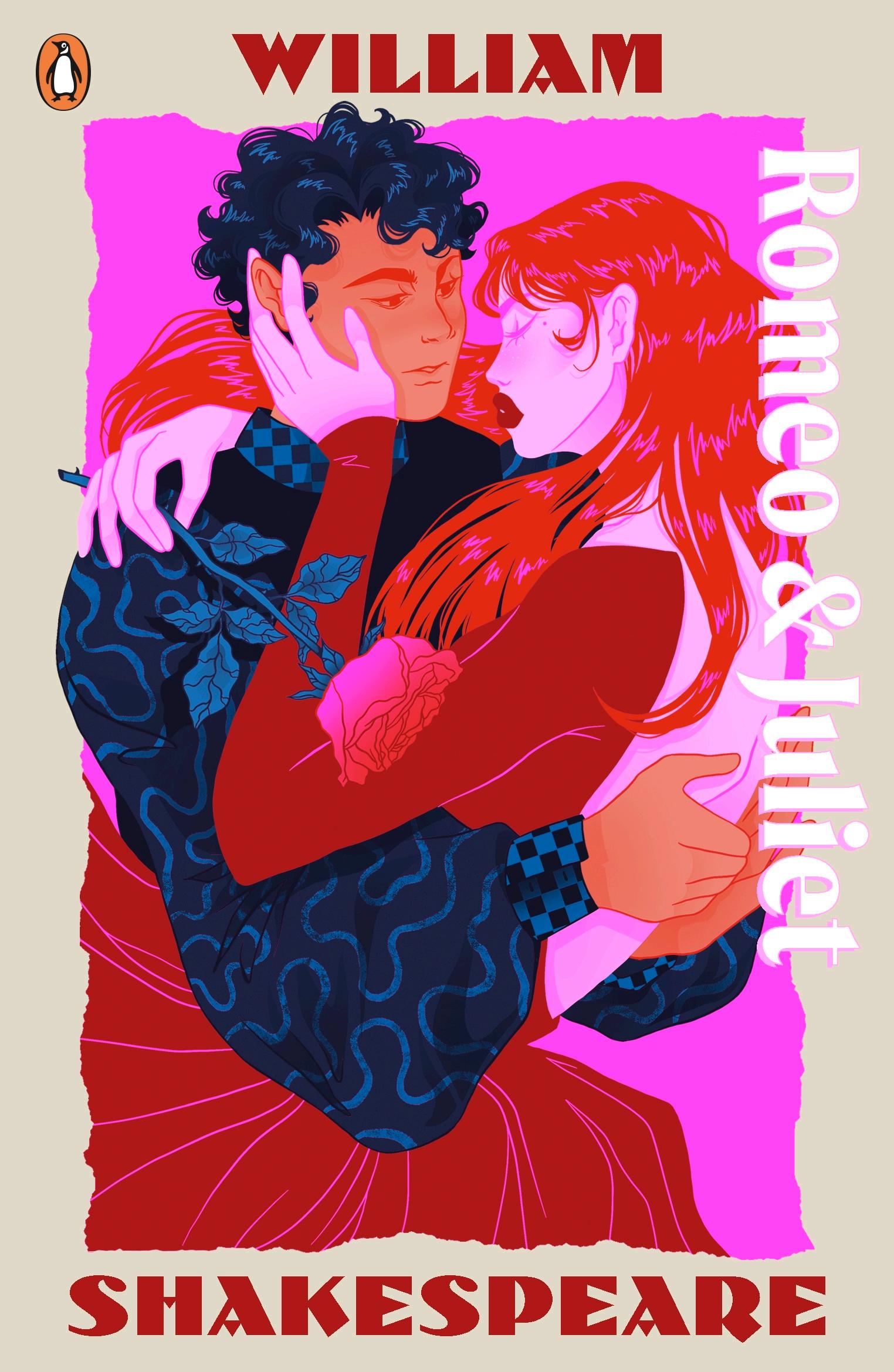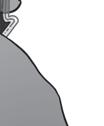

Romeo & Julietand Juliet
BOOKS IN THE STAGED COLLECTION THE COMEDIES
As You Like It
A Midsummer Night’s Dream
Much Ado About Nothing
THE TRAGEDIES
Hamlet Macbeth
Romeo and Juliet

and Juliet
PENGUIN BOOKS
UK | USA | Canada | Ireland | Australia
India | New Zealand | South Africa
Penguin Books is part of the Penguin Random House group of companies whose addresses can be found at global.penguinrandomhouse.com
www.penguin.co.uk
www.puffin.co.uk
www.ladybird.co.uk
First published in the UK by Penguin Books 2024
001
This edition copyright © Penguin Books, 2024 Foreword copyright © Jennifer Niven, 2024 Endmatter copyright © Penguin Books, 2024 Illustrations by Lucie Corbasson-Guévenoux (Lucie Louxor), 2024
The moral right of the authors and illustrator has been asserted
Printed and bound in Great Britain by Clays Ltd, Elcograf S.p.A.
The authorized representative in the EEA is Penguin Random House Ireland, Morrison Chambers, 32 Nassau Street, Dublin d02 yh68
A CIP catalogue record for this book is available from the British Library isbn: 978–0–241–68206–7
All correspondence to:
Penguin Books
Penguin Random House Children’s One Embassy Gardens, 8 Viaduct Gardens, London sw11 7bw
Penguin Random House is committed to a sustainable future for our business, our readers and our planet. is book is made from Forest Stewardship Council® certified paper.
FOREWORD
BY JENNIFER NIVENI was sixteen when I first read Romeo and Juliet. In my Indiana bedroom, I curled up in my beanbag and a mound of pillows and scanned the description on the back cover even though, of course, I already knew what the play was about. Everyone knew what it was about. Two star-crossed young lovers who are forbidden to be together because their families hate each other. Their famous undying love. Their infamous tragic end.
At sixteen, I was a hopeless romantic, in love with love. I’d already experienced my share of earthquaking unattainable love. There was the boy I met on vacation when I was thirteen. We knew each other for one blissful week before I had to leave him. We breathed at each other on the phone and wrote letters which were romantic and filled with yearning. It wasn’t sustainable.
The distance at that age was insurmountable. Because how do you maintain that kind of sparking, electric connection when you’re separated by miles? Undaunted, I fell for another boy in another faraway place when I was fourteen, and again at fifteen. Another separation. More yearning. I was always, it seems, falling for boys I could never be with.
I had just turned sixteen when I started pining for a boy at my high school. Supposedly, he felt the same. I waited and waited but he never acted on it. In that same Indiana bedroom, I comforted myself with songs featuring broken hearts and books featuring tragic romances. As a reader, I adored Jane Austen, but I devoured the Brontës. The darker the story and the more it shattered my already shattered heart, the better.
Romeo and Juliet was the first Shakespeare play I’d ever attempted to read from start to finish. As I flipped open the pages, I found the language daunting and hard to get into. But I wanted to get into it because of the story and all it promised – not just a level of understanding of human emotion and life itself, but the romance, the lively cast of characters and the humour. Gradually, the rhythm of the words lured me in. The language was hypnotic, and what I discovered was a frenzied, absorbing story of star-crossed love, family drama, teenage heartache and death. It had everything I devoured as a reader.
More than that, the story had all the passion, fervour, angst, desperation, helplessness, invincibility and impetuousness I felt at sixteen. Both Romeo and Juliet lived a wild, too-short, lightning flash of a life. I could relate to them. Ever since I’d turned thirteen I’d felt too much all at once. So many emotions. So much to feel and think about and take in and digest. Reading helped me make sense of myself. I kept a thick journal of literary quotes that made me feel seen and understood, like these lines from Romeo and Juliet:
‘My bounty is as boundless as the sea, My love as deep. The more I give to thee, The more I have, for both are infinite.’
Flash forward to 2013 when I began writing my first book for young adults. All the Bright Places was inspired by a boy I once loved and lost to suicide. For the first time since high school, I picked up Romeo and Juliet and reread it from start to finish.
The star-crossed lover trope is as familiar to readers as the love triangle. Since those original star-crossed lovers – Romeo and Juliet – forbidden love has become one of the most famous, frustrating, soul-wrenching romantic tropes of all time. Two people who – thanks to immovable circumstances – can never be together.
Like Romeo and Juliet, my Finch and Violet experience a
heady, all-consuming love, obstacles that feel impossible, acres of loss, and issues surrounding suicide – the final, desperate, unchangeable act of it and the crater-like hole it creates in the lives of loved ones left behind.
As an adult rereading the play, I found it resonated this time around with the themes of loss, because by now I had lost people of my own. The thing that struck me all over again was that Shakespeare is as relevant today as he was in the late sixteenth century when Romeo and Juliet was first published, especially when we bring our modern sensibilities and knowledge to the reading.
‘Come, gentle night; come, loving black-browed night, Give me my Romeo, and when I shall die, Take him and cut him out in little stars, And he will make the face of heaven so fine That all the world will be in love with night.’
I envy those of you who are reading these lines and these pages for the first time. But as my own eyes scan the words again, I can feel the fluttering of my teenage heart – the one that still beats inside my chest. A breathlessness, hopefulness, pain and heartache at the beauty, the tragedy and the truth of Shakespeare’s words.
penguin books
Romeo & Julietand Juliet
THE CHARACTERS IN THE PLAY
romeo, a Montague
montague, Romeo’s father, head of the Montague family
lady montague, Romeo’s mother and Montague’s wife
benvolio, nephew of Montague and friend of Romeo and Mercutio
abraham, a servant of Montague
balthasar, a servant of Montague attending on Romeo
juliet, a Capulet
capulet, Juliet’s father, head of the Capulet family
lady capulet, Juliet’s mother and Capulet’s wife
nurse to Juliet
tybalt, nephew of Lady Capulet
petruchio, Tybalt’s companion
cousin capulet, an elder cousin of the Capulet family
sampson
gregory peter Capulet servants
prince Escalus of Verona
paris, the Prince’s kinsman and Juliet’s suitor
mercutio, the Prince’s kinsman and Romeo’s friend page to Paris
friar laurence, a Franciscan monk
friar john, a Franciscan monk
apothecary
Three musicians (Simon Catling, Hugh Rebeck and James Soundpost)
The watch citizens of Verona
chorus
Attendants, Maskers, Torchbearers, Pages, Servants
PROLOGUE
Enter Chorus
chorus
Two households, both alike in dignity
In fair Verona, where we lay our scene,
From ancient grudge break to new mutiny, Where civil blood makes civil hands unclean.
From forth the fatal loins of these two foes
A pair of star- crossed lovers take their life; Whose misadventured piteous overthrows
Do with their death bury their parents’ strife.
The fearful passage of their death- marked love,
And the continuance of their parents’ rage,
PROLOGUE
Which, but their children’s end, nought could remove, Is now the two hours’ traffic of our stage;
The which if you with patient ears attend, What here shall miss, our toil shall strive to mend.
Exit









ACT I
SCENE I
VERONA. A PUBLIC PLACE
Enter Sampson and Gregory, of the house of Capulet, armed with swords and bucklers
s ampson
Gregory, o’my word we’ll not carry coals.
g regory
No, for then we should be colliers.
s ampson
I mean, and we be in choler, we’ll draw.
g regory
Ay, while you live, draw your neck out o’the collar.
s ampson
I strike quickly, being moved.
g regory
But thou art not quickly moved to strike.
s ampson
A dog of the house of Montague moves me.
g regory
To move is to stir; and to be valiant is to stand. Therefore if thou art moved thou runn’st away.
s ampson
A dog of that house shall move me to stand. I will take the wall of any man or maid of Montague’s.
g regory
That shows thee a weak slave, for the weakest goes to the wall.
s ampson
True, and therefore women, being the weaker vessels, are ever thrust to the wall. Therefore I will push Montague’s men from the wall, and thrust his maids to the wall.
g regory
The quarrel is between our masters and us their men.
s ampson
’Tis all one. I will show myself a tyrant: when I have fought with the men, I will be civil with the maids – I will cut off their heads.
g regory
The heads of the maids?
s ampson
Ay, the heads of the maids, or their maidenheads. Take it in what sense thou wilt.
g regory
They must take it in sense that feel it.
s ampson
Me they shall feel while I am able to stand, and ’tis known I am a pretty piece of flesh.
g regory
’Tis well thou art not fish; if thou hadst, thou hadst been poor John. Draw thy tool! Here comes of the house of Montagues.
Enter Abraham and another Servingman
s ampson
My naked weapon is out. Quarrel, I will back thee.
g regory
How? Turn thy back and run?
s ampson
Fear me not.
ROMEO AND JULIET
g regory
No, marry. I fear thee!
s ampson
Let us take the law of our sides; let them begin.
g regory
I will frown as I pass by, and let them take it as they list.
s ampson
Nay, as they dare. I will bite my thumb at them, which is disgrace to them if they bear it.
a braham
Do you bite your thumb at us, sir?
s ampson
I do bite my thumb, sir.
a braham
Do you bite your thumb at us, sir?
s ampson
Aside to Gregory
Is the law of our side if I say ‘Ay’?
g regory
Aside to Sampson
No.
s ampson
No, sir, I do not bite my thumb at you, sir, but I bite my thumb, sir.
g regory
Do you quarrel, sir?
a braham
Quarrel, sir? No, sir.
s ampson
But if you do, sir, I am for you. I serve as good a man as you.
a braham
No better.
s ampson
Well, sir.
Enter Benvolio
g regory
Aside to Sampson
Say ‘better’. Here comes one of my master’s kinsmen.
s ampson
Yes, better, sir.
a braham
You lie.
s ampson
Draw, if you be men. – Gregory, remember thy swashing blow.
They fight
Benvolio draws his sword
b envolio
Part, fools!
Put up your swords. You know not what you do.
Enter Tybalt, drawing his sword
t ybalt
What, art thou drawn among these heartless hinds?
Turn thee, Benvolio; look upon thy death.
b envolio
I do but keep the peace. Put up thy sword, Or manage it to part these men with me.
t ybalt
What, drawn and talk of peace? I hate the word,
As I hate hell, all Montagues, and thee.
Have at thee, coward!
They fight
Enter several Citizens with clubs or partisans
f irst c itizen
Clubs, bills and partisans! Strike! Beat them down!
Down with the Capulets! Down with the Montagues!
Enter Capulet in his gown, and Lady Capulet
c apulet
What noise is this? Give me my long sword, ho!
l ady c apulet
A crutch, a crutch! Why call you for a sword?
Enter Montague and Lady Montague
c apulet
My sword, I say! Old Montague is come And flourishes his blade in spite of me.
m ontague
Thou villain Capulet! – Hold me not; let me go.
l ady m ontague
Thou shalt not stir one foot to seek a foe.
Enter Prince Escalus with Attendants
p rince
Rebellious subjects, enemies to peace,
Profaners of this neighbour- stainèd steel –
Will they not hear? – What ho, you men, you beasts,
That quench the fire of your pernicious rage
With purple fountains issuing from your veins!
On pain of torture, from those bloody hands
Throw your mistempered weapons to the ground,
And hear the sentence of your movèd prince.
Three civil brawls, bred of an airy word
By thee, old Capulet, and Montague, Have thrice disturbed the quiet of our streets
And made Verona’s ancient citizens
Cast by their grave- beseeming ornaments
To wield old partisans in hands as old,
